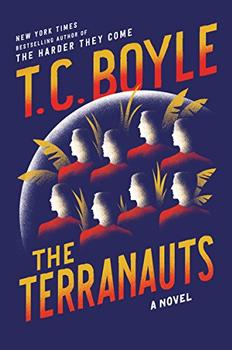Summary | Excerpt | Reading Guide | Reviews | Beyond the book | Read-Alikes | Genres & Themes | Author Bio

In The Last Man Standing, Italian author Davide Longo's first novel to be translated into English, a double apocalypse transforms a literary author into a hero when his country deteriorates into anarchy after an economic collapse. Leonardo has trashed his career and his family and retreated to the village of his birth. As Italy descends into chaos with fuel, food, and services getting more scarce month by month, he sits in a room full of thousands of books waiting for things to improve.
One day his ex-wife appears with their 16-year-old daughter Lucia and her troubled son by a second marriage. She leaves the children with Leonardo to go in search of her husband who has not been heard from for months after being sent to the Swiss border as a military engineer. Though having promised to return in two weeks, there is no further word from her.
Incident after incident of increasing deprivation, violence from "outsiders", and the exodus of villagers hoping to reach either Switzerland or France finally bring Leonardo to realize that the children are no longer safe. The three of them set out with a bit of food and a tank of gas. He wants to keep his daughter from harm, as well as rescue his stepson from growing anti-social tendencies, but his sense of humiliation and inferiority has kept him almost paralyzed. After a series of calamities and close calls, this passive man begins to awaken from his disassociation.
It was a truth that he had painfully been forced to acknowledge...that the creative force in life was extravagance rather than tightfistedness, gambling rather than calculation, and that every true creative act was born of risk taking.
This kind of writing is what moves The Last Man Standing from a post-apocalyptic thriller into a psychological drama; an examination of the demands on human beings faced with the loss and destruction of what is called civilization.
Longo does not stint on gruesome details or cloak the degradation his characters experience. When a gang of drug-crazed youths and their psychopathic leader capture Leonardo and Lucia, the violence and depravity to which they are subjected is dark, dirty, and extremely upsetting. This crucible transforms a shrinking coward into the last man standing, but Longo tempers the horror by means of eloquent, insightful passages, as well as wise characters who appear just when Leonardo is about to cave in to despair.
Despite its doomful and depressing tone, this novel is leavened with bright moments of grace. There are references to stories by Flaubert, Tolstoy, Thomas Mann, and Albert Camus. Two strong and uplifting women, a loyal friend, not to mention both a dog and an elephant (each with more sense than some of the humans), all shine beams of hope. I closed the book feeling that the power of greatness in humanity is stronger and more lasting than the ineptitude and evil mankind can contrive.
![]() This review was originally published in The BookBrowse Review in November 2013, and has been updated for the
October 2014 edition.
Click here to go to this issue.
This review was originally published in The BookBrowse Review in November 2013, and has been updated for the
October 2014 edition.
Click here to go to this issue.

If you liked The Last Man Standing, try these:

by T.C. Boyle
Published 2017
A deep-dive into human behavior in an epic story of science, society, sex, and survival, from one of the greatest American novelists today, T. C. Boyle.

by Andy Weir
Published 2014
Six days ago, astronaut Mark Watney became one of the first people to walk on Mars. Now, he's sure he'll be the first person to die there.




I find that a great part of the information I have was acquired by looking something up and finding something else ...
Click Here to find out who said this, as well as discovering other famous literary quotes!
Your guide toexceptional books
BookBrowse seeks out and recommends the best in contemporary fiction and nonfiction—books that not only engage and entertain but also deepen our understanding of ourselves and the world around us.